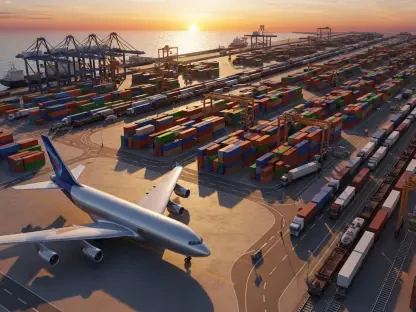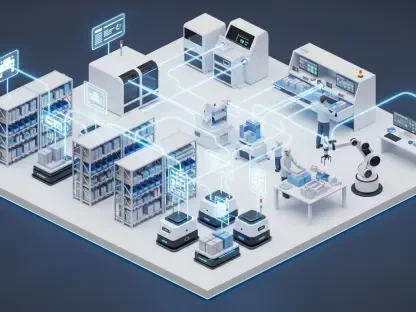The logistics industry stands as a pivotal sector in the global economy, connecting manufacturers, retailers, and consumers across continents. Recent years have seen the industry experiencing rapid transformation, driven by technological advances and changing consumer needs. Key segments include transportation, warehousing, and distribution, which are influenced by technology such as automation, AI, and blockchain. Major players vary from global shipping companies to local delivery firms, each navigating complex regulations that balance efficiency with compliance.
Trends and Market Dynamics
Industry Trends and Influences
The logistics sector faces a landscape characterized by swift change, driven by numerous industry trends and transformative forces. Emerging technologies are reshaping operations, with automation reducing manual labor and AI enhancing decision-making. Evolving consumer behaviors, such as the rise of e-commerce and demand for faster delivery, push logistics providers toward agility and innovation. Market drivers include globalization, increasing trade volumes, and the necessity for sustainability. These factors offer numerous opportunities to redefine supply chain processes and attain a competitive edge.
Market Data and Projections
Current market data signals robust growth within the logistics sector, with performance indicators reflecting rising demand and investment. Projections for the coming years indicate continued expansion fueled by e-commerce’s integration into daily commerce and the expected global economic recovery. As companies adapt to innovative technologies and streamline operations, growth forecasts suggest further investment opportunities. Providing a macroeconomic perspective, these projections highlight the need for a skilled workforce to harness these emerging trends effectively.
Industry Challenges and Solutions
Despite positive growth trajectories, the logistics industry encounters significant challenges that require strategic attention. Among these are technological hurdles, such as data security concerns with increased digitization, and regulatory barriers that fluctuate with international trade policies. Market-driven issues, including demand for sustainability and cost pressures, further complicate logistics operations. Possible solutions involve embracing next-generation technologies, investing in workforce training, and fostering international collaborations to create scalable, customer-focused solutions.
Regulatory Environment
Navigating the regulatory environment is crucial for logistics companies, as laws and standards profoundly impact operational practices. Compliance with regulations concerning environmental impact, data protection, and cross-border trade is essential. Recent regulatory changes aim to promote transparency and accountability, urging companies to adopt secure and sustainable logistical practices. These regulations play a pivotal role in shaping the industry’s future, with compliance and adaptability standing as key considerations for any market participant.
Future Industry Directions
As the logistics industry progresses, several emerging directions will shape its trajectory. The integration of advanced technologies such as AI, IoT, and automation promises significant efficiency gains and new market disruptors. Consumer preferences now lean towards convenience and rapid delivery, driving innovation in logistics processes and services. Future growth areas hinge on collaboration, technological integration, and adapting to shifting global economic conditions. Innovation, regulatory compliance, and emphasis on sustainability are set to steer the industry’s future.
Conclusion and Recommendations
In light of the logistics industry’s evolving landscape, actionable steps must be considered to leverage emerging opportunities and navigate challenges. While transformative technology and shifting consumer behaviors were central themes, areas like technological adoption and regulatory adaptation require focused strategies. Companies are encouraged to invest in workforce development, emphasizing skills and knowledge that align with future demands. Continuing adaptation to regulatory changes, coupled with fostering innovation and international collaboration, enhances their growth and relevance in the logistics sector.









